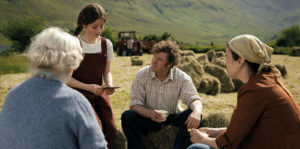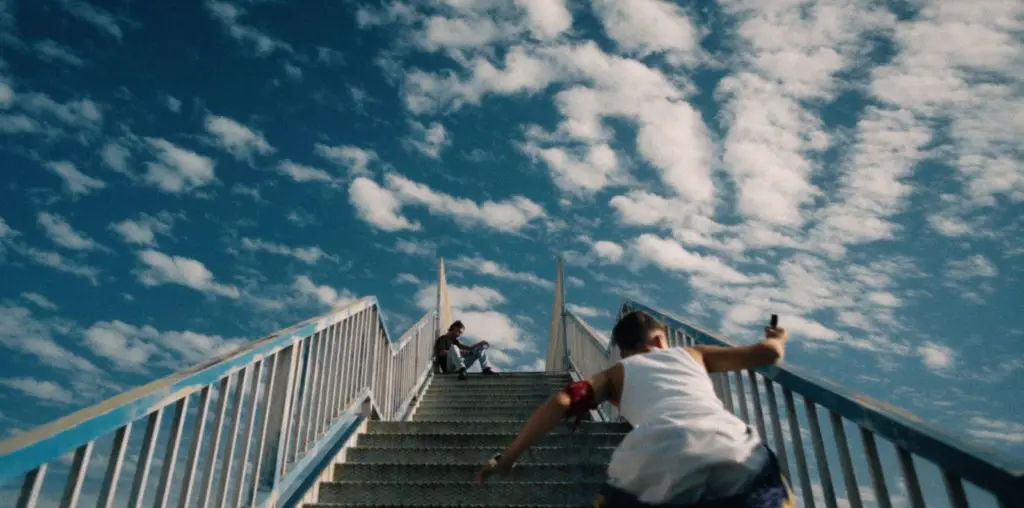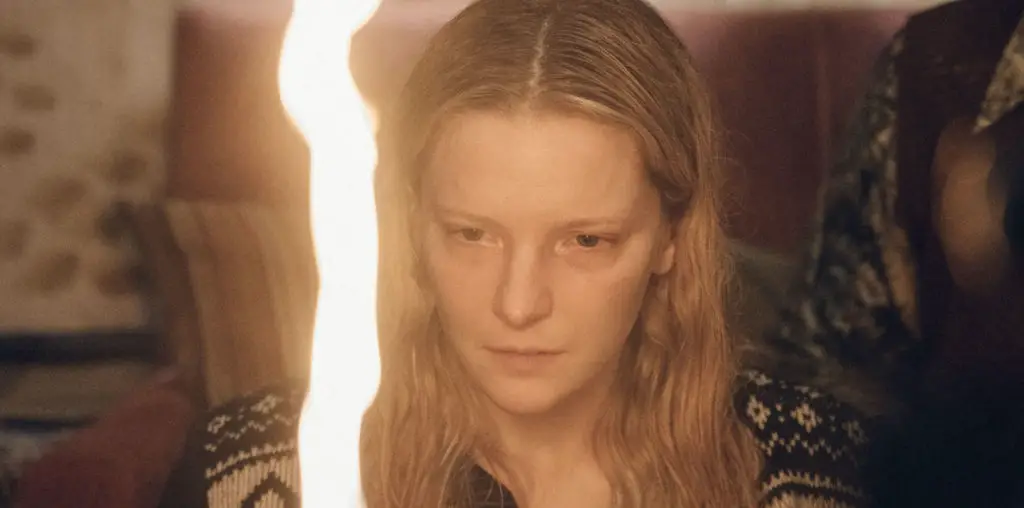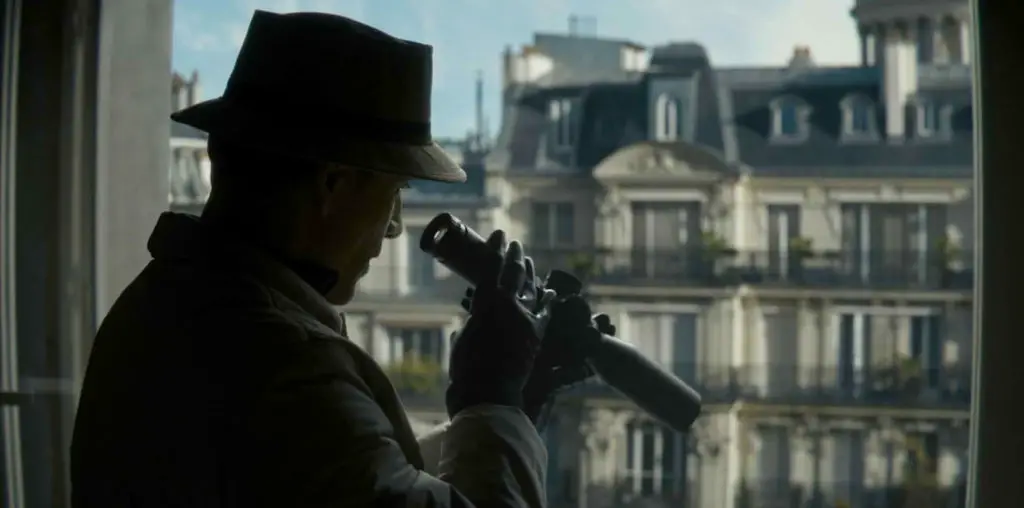
John McGahern was one of the most celebrated Irish authors of his time, and this film adapts his last great masterpiece. That They May Face the Rising Sun (released in America as On the Lake) is a thinly fictionalized novel about his move to Fenagh in the west of Ireland around the start of the eighties, following a long spell in London with his wife. It was published just four years before he died of cancer in 2006.
The plot, such as it is, concerns Joe Ruttledge and his wife Kate (Barry Ward and Anna Bederke), who have bought a small cottage by a lake on around twenty acres of land in remote Leitrim, Joe’s ancestral home on his father’s side. These childless artists don’t make great farmers, and their lives, as shown here, seem mostly taken up with dealings with the locals and some vestigial ties to London and its art scene.
“…despite coming off poorly in the habitual sparring of the bored seniors.”
Home for about five years, they are still effectively interlopers on several levels. The locals are nearly all ancient. It’s forever since the countryside was ‘walking with people’ as one of them puts it. The land has emptied itself of its young with decades of diaspora. The bewhiskered specimens who are left are not only from a different time but another country in a sense, all born just on the other side of the Easter Rising.
The patrician good looks of Barry Ward and the exotic finesse of Anna Bederke lend themselves well to the leads. Joe and Kate embody the ‘towny’ at first glance. Their sharpness and luster stand out firmly against a populace as wizened as ancient woodland.
Despite living behind a hill from the world, the auld fellas always seem to hold all the aces. For example, Patrick Ryan, a farmer played meticulously by Lalor Roddy, jumps up from the Rutledge kitchen table to stage some fiery lines from Synge’s The Playboy of the Western World with a pal. It turns out he’s an ardent actor, despite living in what he (very accurately) describes as ‘a room full of sticks’. This role felt like the highlight of the film. Roddy channels the energies of a regional hinterland like a wizard, making hay with a great deal of cherishable dialogue from the book.
"…Whole passages of McGahern’s faultless prose make it to the screen intact, whether as the sweetest dialog you’ll hear all year, or through ... vivid narration on the seasons and the land"


